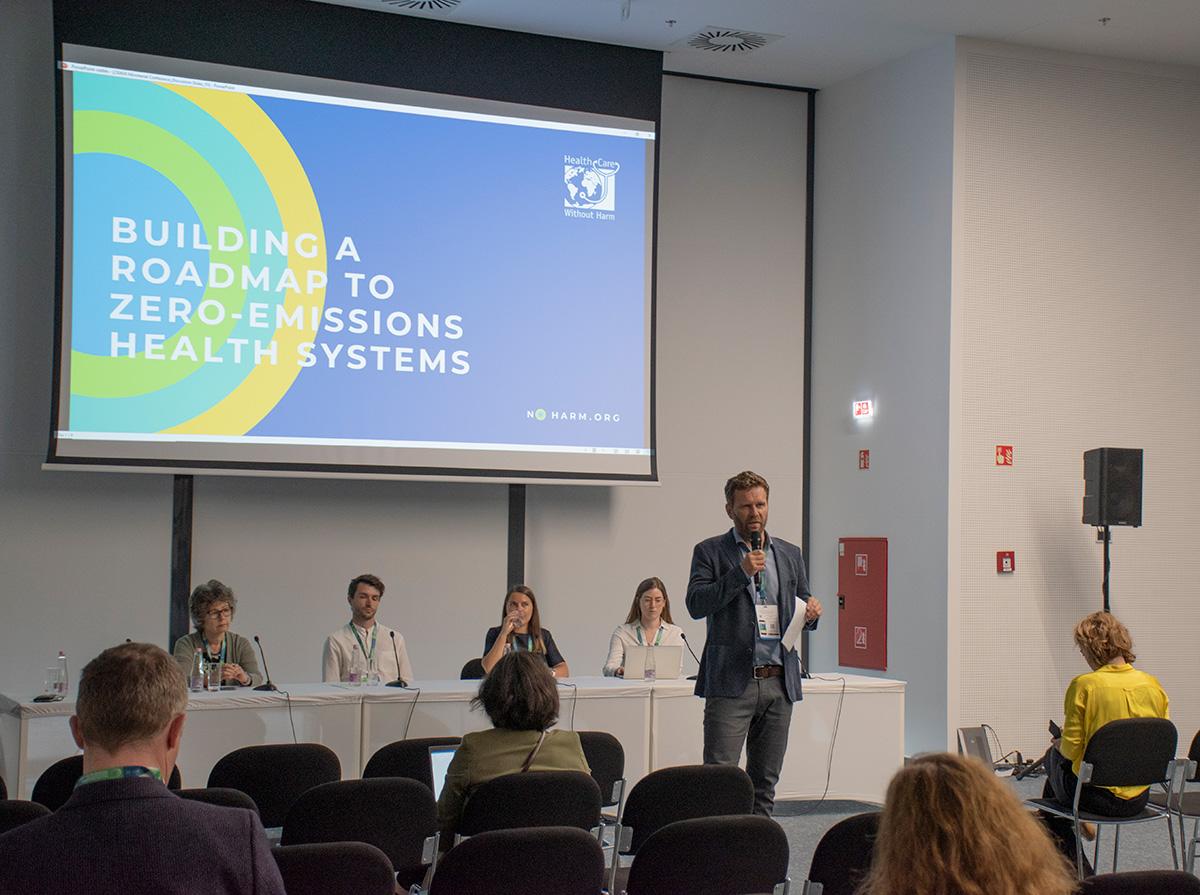The Ministerial Conference on Environment and Health (MCEH) brings together representatives from the health and environment ministries of countries from across the WHO Europe region. On 5-7 July, at the 7th edition of the conference, they agreed to prioritise actions that address health challenges from the triple crisis of climate change, environmental pollution, and biodiversity loss.
“We know enough to act,” said Sophie Gepp, a newly graduated doctor representing the German Alliance on Climate Change and Health (KLUG). “The ambition, scale, and pace of action do not match the challenge that climate change poses for health, we therefore need unprecedented policy response”.
An estimated 1.4 million people across Europe die yearly from environmental risk factors - with air pollution being the leading cause of death. Last year Europe faced the hottest summer ever recorded - with over 20,000 people dying due to extreme heat. During the conference itself, the world recorded the hottest day ever.
To address these health challenges, WHO Europe’s MCEH convened health and environment ministry representatives to define the region’s future environment and health priorities and sign a declaration committing to them. One of those priorities, also reflected in the declaration, is an agreement to strengthen health sector engagement in climate action.
Healthcare climate action
The healthcare sector itself is responsible for 5% of net global greenhouse gas emissions. If the healthcare sector was a country, it would be the fifth-largest emitter on the planet. Without action, healthcare emissions could triple by 2050.
As the health impacts of climate change become clearer, there is a growing responsibility for the healthcare sector to show leadership on climate action by reducing its own emissions to net zero and adapting now so our health systems become more resilient.
During the conference, Nick Watts, Chief Sustainability Officer of NHS England, told delegates that “net-zero healthcare is no longer just a nice to have, but the inevitable future direction of medicine.”
The Budapest declaration, signed by the ministries, includes a commitment to make health systems and facilities climate resilient and environmentally sustainable. The parties agreed to decarbonise service delivery in alignment with the COP26 Health Programme and form a regional community of practice of European countries working towards low carbon and climate-resilient health systems.
Ireland, Austria, Belgium, The Netherlands, the UK, and Norway went a step further by signing the Environment and Health Process (EHP) Partnership for Health Sector Climate Action.
How to decarbonise the healthcare system
HCWH Europe provides tools and guidance for health systems and providers to achieve net zero. Among those tools is a methodology that any national or regional health authority can use to measure healthcare emissions and establish a decarbonisation roadmap.
Developed as a part of our groundbreaking Operation Zero project, this technical methodology is aimed at analysts working within national or regional health authorities but also includes guidance for policy officials. It was piloted by three national and regional health authorities, ensuring that it ultimately drives action among European health systems.
At MCEH, HCWH Europe held a parallel session for policymakers on Building a roadmap to zero emissions health systems. Organised in collaboration with our technical partner Arup, we demonstrated how the Operation Zero project can support Member States on the path to net zero emissions healthcare. The session provided crucial insight on the challenges and opportunities health authorities face to decarbonise their operations.

“Health Care Without Harm Europe has been leading the movement for sustainable healthcare in Europe for the past two decades, working directly with healthcare professionals and providers to promote sustainability within the healthcare sector and beyond. We’re delighted to see more governments committing to driving healthcare climate action; however, commitments need to be followed up by action. The work we are doing through projects such as Operation Zero are there to support system leaders in doing just that.”
- Will Clark, Executive Director - HCWH Europe.
We welcome the political commitments made at MCEH towards building a more sustainable future and healthcare sector and hope that the Budapest declaration will accelerate action across Europe.
As Hildegarde Naughton, Minister of State at the Department of Health in Ireland, put it: “Don’t be afraid to ask your health systems to be more ambitious.”
We would like to echo those words. Health systems, healthcare providers, and health professionals can play a vital role in ensuring that the health sector is sustainable and does not harm people or the planet. The healthcare sector can lead the transition to a more sustainable future.